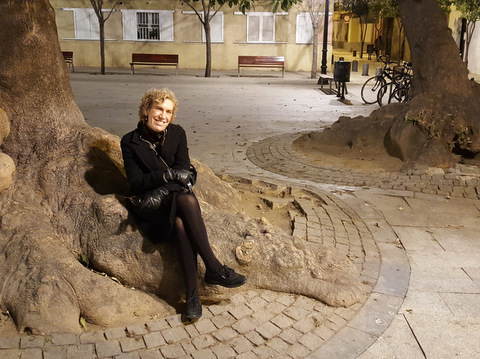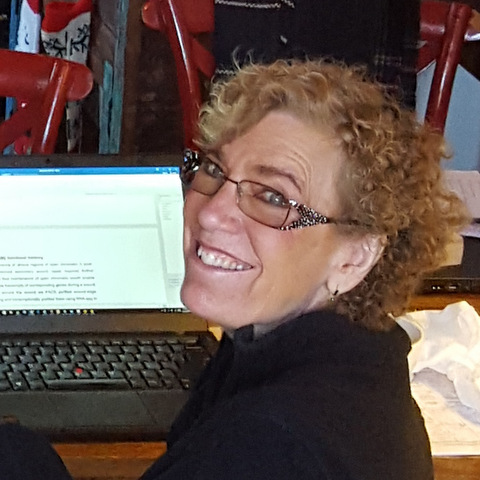
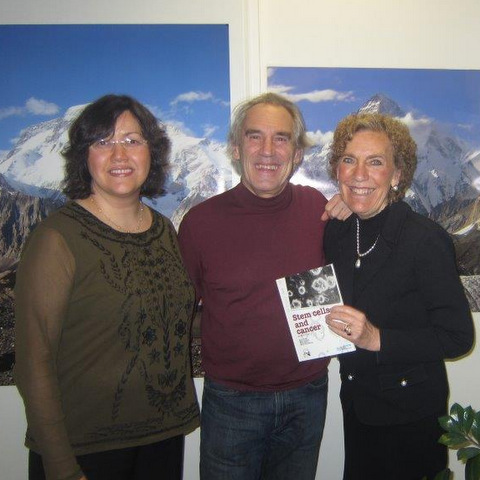
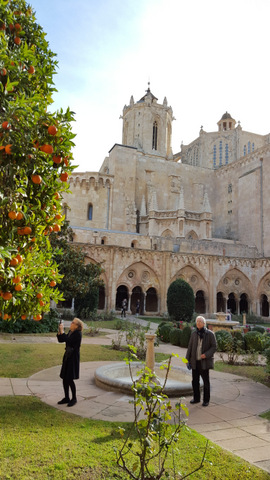
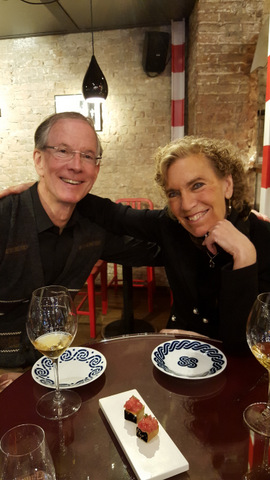
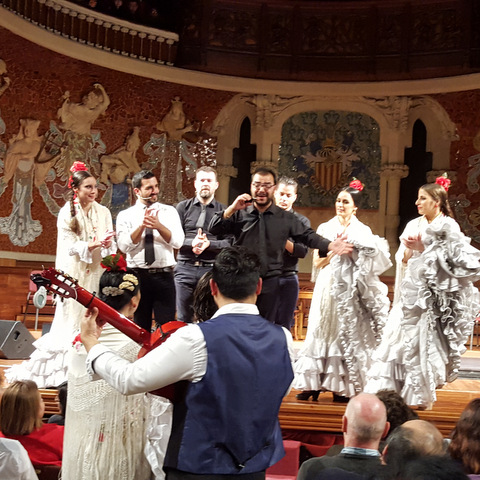
Elaine Fuchs in Spain
Elaine Fuchs (Rebecca C. Lancefield Professor of Mammalian Cell Biology and Development at the Rockefeller University and an HHMI Investigator) has recently returned from a month in Barcelona at the Institute for Research in Biomedicine (IRB). Her tumor stem cell studies on transforming growth factor beta is the research area that provided the initial impetus to choose the IRB for her Vallee Visiting Professorship sabbatical, particularly the laboratory of Eduard Batlle, who studies the intestinal epithelial stem cells and their progression to malignancy, and the effects of TGF-beta on the process. During the month, Elaine’s many fruitful discussions with Dr Battle, Dr Elena Sancho, and other lab members, provided ample opportunity to strengthen and expand their interactions.
Over the course of her month in Spain, Dr Fuchs gave two, well-attended seminars. The first was a discussion of her work on adult tissue stem cells of the skin, including work that came out in Nature at the very end of her stay, in which her team discovered a novel mechanism of how certain messenger RNAs encoding growth-promoting proteins are able to be translated efficiently in early cancer stem cells while translation of other mRNAs are reduced. By presenting this new finding, Elaine sparked unanticipated conversations and possible new avenues for collaboration with Dr Raul Mendez, an expert at the IRB in the field of protein translation. Until the day of her seminar, they had been unaware of each other’s research.
Dr Fuchs also gave a seminar on Women in Science and the importance of diversity in scientific institutions. Like her research seminar, this seminar was delivered to a packed house. Her audience included the administrators involved in the Equality and Diversity Committee at the IRB, as well as faculty, postdocs, students and staff.
Finally, Elaine traveled to Madrid to give a seminar at the Spanish National Cancer Research Center (CNIO) where she was hosted by Drs Erwin Wagner and Maria Perez-Moreno, experts in the field of epithelial-immune interactions. There Dr Fuchs met with a number of the research scientists at the CNIO who were particularly interested in her work on skin stem cells and aging, with regards to their reduced ability to recruit and activate immune cells in response to a wound. This recent work, published in Cell, provides insights into why our wounds heal more slowly as we age.
Overall, the Vallee Visiting Professorship was exceptional, providing ample opportunities to strengthen existing interactions with her colleagues at the IRB in Barcelona and the CNIO in Madrid, forge new interactions and discussions with faculty, postdocs and students, and experience a little bit of the history, music and daily life of the Catalans. 
